On October 26th, representatives from five international organizations—ITU, UNICEF, IFRC, UNFPA, and WHO—visited Tsinghua University. They engaged in insightful exchanges with faculty and students from the Department of Electronic Engineering and the School of Public Health, aiming to foster collaboration and knowledge sharing in the fields of AI, electronic engineering, and public health.
The event began at the Tsinghua Art Museum. Attendees included Professor Li Maokun, Deputy Chair of the Department of Electronic Engineering, along with Professors Song Jian and Pan Changyong, International Education Director Guo Yining, and representatives from the School of Public Health, including Professor Wang Kaibo, Deputy Secretary of the Party Committee, Associate Professor Zhao Ai, Director of International Exchange and Cooperation Li Tian, and Director of Cooperation and Development Gu Minjie.
Professor Li Maokun provided an overview of the Department of Electronic Engineering, highlighting its research directions and global strategies centered on sustainable innovation. He emphasized the department's efforts to encourage students to participate in global educational programs.
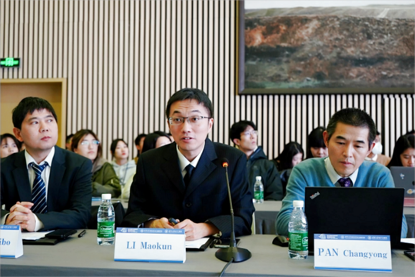
Professor Song Jian shared his experience at the International Telecommunication Union (ITU), discussing the process of promoting China's Digital Terrestrial Multimedia Broadcast (DTMB) standard and the importance of global cooperation. He also advocated for student internships and academic cooperation with international organizations.
Professor Wang Kaibo introduced the development of the School of Public Health since its establishment in 2020, highlighting its diverse degree programs and collaborations with internationally renowned schools and organizations. Student representative Qiu Siyuan shared her experiences participating in the World Health Assembly and health forums, showcasing valuable international exchange opportunities.
Representatives from the international organizations shared their institutions' priorities and praised Tsinghua's talent education program. They expressed interest in further cooperation through joint projects and internship programs, providing platforms for students to showcase their talents. During the free discussion session, student representatives and international organization officials discussed topics such as career development and the equitable use of satellite orbits.
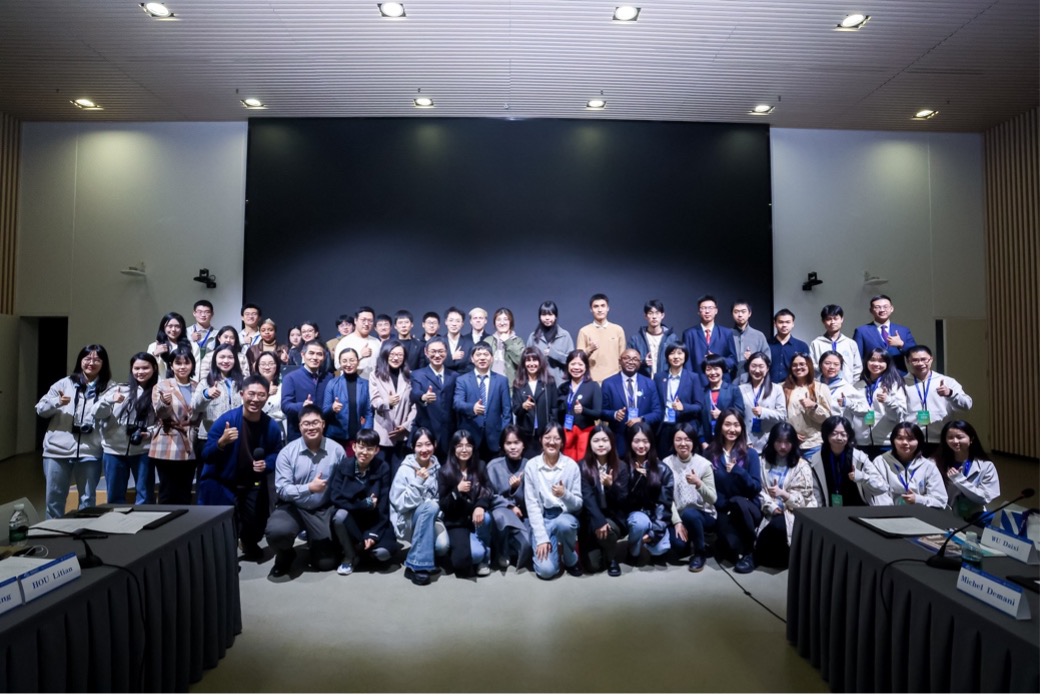
After the exchange and discussion session, the international organization delegation toured the Department of Electronic Engineering. Dr. Jiang Yi, the executive director of the Sustainable Innovation Initiative, introduced them to AI-Powered Big Data Platforms designed to Enhance City Resilience and Wellness. These projects showcased the innovative contributions of electronic engineering faculty and students towards the United Nations' Sustainable Development Goals.

Dr. Wang Huandong presented the "Urban Simulator" developed by Professor Li Yong and his team. This advanced simulation platform models complex urban interactions, combining physical and social elements. It features multi-element and multi-scale modeling, supporting real-time simulations for millions of agents. The platform can be applied in areas such as Embodied AI, agent-based modeling, urban infrastructure optimization, and pandemic spread modeling.
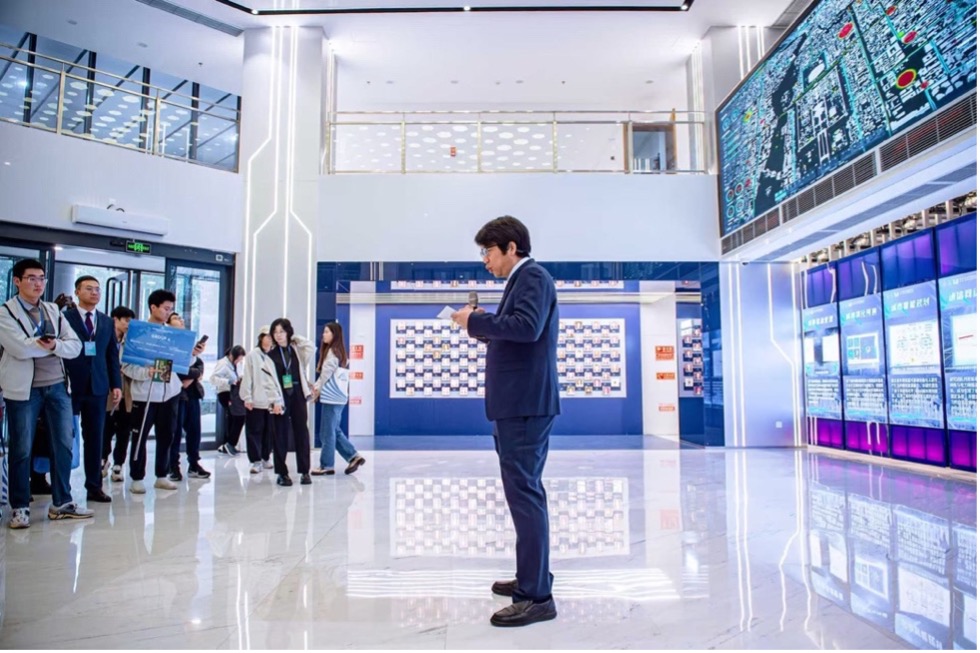
Professor Zhou Sheng's team demonstrated the Connected and Automated Driving Platform. This platform addresses the challenges of single-vehicle intelligence by integrating Vehicle-to-Everything (V2X) communication and vehicle-road collaboration technologies. It serves as a testing ground for various vehicular network applications and provides robust data support for autonomous driving algorithms.
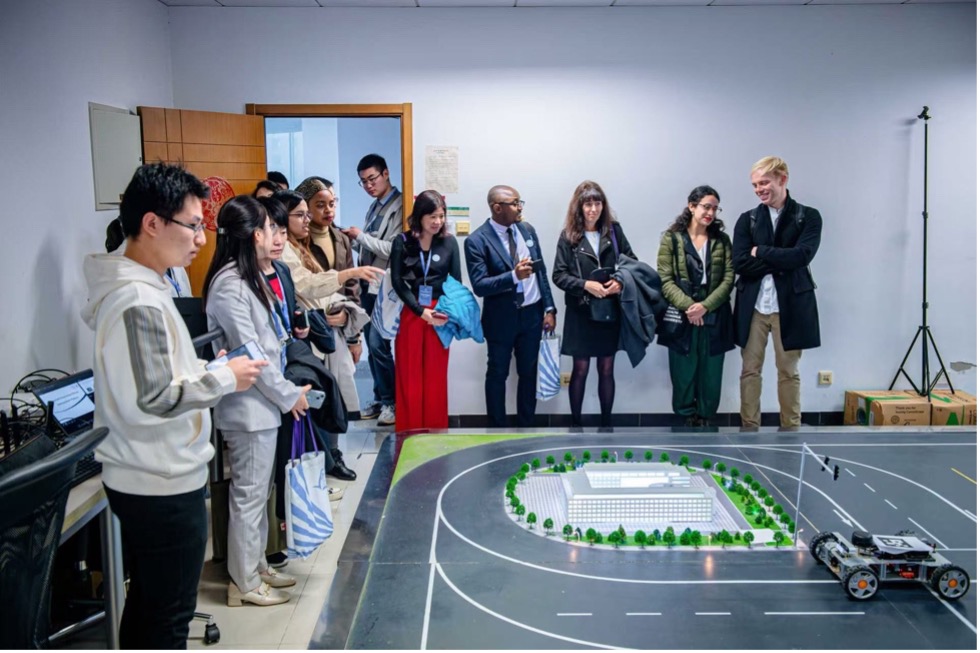
Dr. Guo Chenyi introduced the Multimodal Human-Centric Perception and Analysis System developed by Professor Wu Ji and his team. This system collects diverse data on individuals, enabling personalized services and insights into human behavior. It has applications in healthcare, such as remote monitoring of patients' vital signs, and provides personalized treatment recommendations.
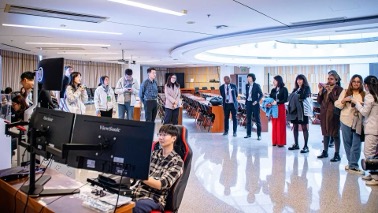
The event marked a successful collaboration between Tsinghua University and international organizations, promoting knowledge exchange and setting the foundation for future cooperation. Faculty and students from Tsinghua's Department of Electronic Engineering gained valuable insights into international organizations and identified promising career and collaboration opportunities. Representatives anticipate hosting more students for internships, further solidifying this partnership and driving continued growth.
About the Sustainable Innovation Initiative
In 2022, the Department of Electronic Engineering at Tsinghua University launched the Sustainable Innovation Initiative. This program aims to foster technological innovation and sustainable development in the electronic engineering field. Its core objectives include enhancing students' global competencies through an improved global education system; Establishing a sustainable global cooperation network to create a vibrant education and research hub; and actively promoting innovation and technology transfer for the benefit of society and the common good. The initiative focuses on nurturing high-quality talents with a global perspective, who are equipped to address global challenges and adapt to the ongoing digitalization and green industrial transformations.